|
2/15/2020 Craig Williams, Nike Jordan Brand President, Talks About Its Iconic Legacy And FutureRead Now​The head of the iconic brand explains what it means after nearly 35 yearsThe iconic pose was created in 1984 during a photoshoot for Life magazine. A young Michael Jordan was rising above the ground going up for a dunk. Now, almost 35 years later, that silhouette has become omnipresent, not just around the world of sports, but the world at large. Nike’s Jordan Brand has come back to where the Jordan legend began this weekend for NBA All-Star Weekend and is front and center in and around the city of Chicago. It was here where Jordan became the global icon he remains today, and his influence is seen throughout the brand and its many collaborations and initiatives. HUB23 is the brand’s homebase this weekend, and it has highlighted the Chicago Collaborators’ Collection and on Friday (February 14) celebrated one of the biggest high school basketball tournaments by giving local Chicago hoopers the opportunity to be the city’s All-Stars. ​BET.com sat down for an exclusive interview with Jordan Brand President, Craig Williams. -------------------------------------------------------------------------------------------------------------------- BET: Talk about the significance of Chicago to the Jordan Brand Jordan Brand started with Micahel Jordan and Michael starred here in Chicago with the Bulls. So the synergies are very natural. But beyond that, the city of Chicago breathed life into the Jordan Brand. The game of basketball has deep roots in the city, and therefore basketball culture. All of those things that surround the game of basketball are very important to this city, and the people in this city. BET: The brand is iconic. Michael Jordan is known for being exacting on the court and in business, how does that play out for you as brand president? Exacting means wanting the best in every situation, every circumstance. It also means aspiring for the best, getting the most out of your God-given potential, and striving to be everything that you can be. Michael Jordan demanded that every day and still does that in his business. As a brand we embody that in our daily efforts. But we also represent that as a brand to so many people around the world. Obviously we have a great footprint in North America, right here in the U.S But we have tremendous growth in every marketplace in the world, and that’s where the future of this brand really resides. BET: How do current players like Chris Paul and Russell Westbrook carry on the Jordan legacy? ​The first thing is, they represent on the court. You’re talking about tremendous ball players, tacticians that want to get the best out of their game at any given moment. They also represent the aspirational attributes of the everyday consumer. So when you see a person that is driving to be their very best self on the court, then a normal person like you or I can strive to be our best self, can express ourselves at the highest standard, and can demand more of ourselves in every environment whether its on the court, or in a boardroom, or in the classroom. What this group of players [does] is continue the legacy that MJ established, and therefore this group of players is a part of the community that Jumpman represents. That’s why our UNITE campaign is so important. We’ve moved beyond just one man, as he has inspired so many men, women, and children to do just the same.
BET: The other signature shoes have struggled to step out of the Air Jordan shadow, how do you think about that, the further we move away from Michael’s playing career?
Here’s the good thing for us. We just had our first billion dollar quarter. Our first. So the brand continues to grow, quarter after quarter, year after year. We have the very best expression of performance on the court with the Air Jordan XXXIV, "Why Not?" Zer0.3 and the players that represent those shoes. Then we have lifestyle representation not just in retro shoes, but in our apparel line, and our women’s line. We have a lot of fertile ground in front of us, and I’m excited about the quarters ahead. BET: Speaking of lifestyle, the Jordan Brand partnership with Paris Saint-Germain (PSG) gives you a strong footprint in the fashion capital, what are the lifestyle plans internationally? International markets represent a huge opportunity for us. You’ll see us expand in sports of course. You’ll also see us expand in women and children apparel in Europe, the Middle East, Asia and Africa. We have limitless potential and the consumers agree, based on our last quarter, and I’m excited because we are doing things the right way. BET: How does the brand look at retro sneakers vis-à -vis its other categories? We think about satisfying the consumer. We focus on the external insights that exist in every market around the world. We seek to know what consumers are interested in, not just as it relates to sneakers, but overall style and fashion. You’ll see us represent those insights not just in retro but across our entire business. When I think about our success to date it’s been an example of how we’ve been able to expand in more places than just retro. Obviously retro has been very important to us and we will continue to push it. But we’re pushing in so many areas, and that excites me.
BET: How excited are you about your newest Jordan Brand athletes Zion Williamson and Luka Doncic?
Everyone within the Jordan Brand family represents the attributes we stand for very well. What I like about those two, and all our athletes, is they have similarities that are undeniable, and they are consistent with that idea of being the best. BET: The brand is hosting the Chicago Public Schools city championships, why is it so important for the brand to be here at the youth level in the community? ​This is where the game of basketball lives and this is where it’s played. Not just in Chicago but in communities all around the world. This is also where basketball culture lives. It’s in neighborhoods and courts just like these all around the world. To the extent that the Jordan Brand is a part of that culture, we need to be where the people and the culture reside.
2 Comments
The undisputed women’s middleweight world champion continues to make history and is doing it on her terms.Claressa Shields made boxing history on Friday night (January 10) at the Ocean Casino Resort in Atlantic City, New Jersey.
Shields moved down in weight and dominated Ivana Habazin to win a pair of vacant junior middleweight world title belts in the main event of a Showtime triple-header. She became the fastest fighter male or female to be a three-division world champion. If you know anything about Shields, she believes this is her destiny. She speaks things into existence, and while early on people could say it was just talk, what she predicted is manifesting itself. Shields is from Flint, Michigan, a city that has known its share of extremely desperate times. But don’t call Flint or its residents hopeless around Shields. “Flint is not a hopeless city and I mean that,” she told BET on Tuesday (January 7) at the Hotel Plaza Athénée on New York City’s east side. “I go home all the time, and there’s nothing but strong, resilient people.” Shields is one of those strong, and resilient, people; she embodies the city. Bullied and sexually abused as a child, her mother struggled with alcohol, her family dealt with financial hardships, and she often had to take care of her younger brothers and sisters. Understandably Shields had a lot of anger and would get into fights at school. Boxing was a way for her to channel the anger and hurt from those lived traumas. She took to the sport immediately, winning gold medals in the women's middleweight division at the 2012 (she was 17) and 2016 Olympics, making her the first American boxer—female or male—to win consecutive Olympic medals. Shields turned professional after the 2016 Olympics, won all nine of her fights and all the available titles across the middleweight and super middleweight divisions. She sat down with BET for a candid conversation on who she is, and why she believes she is the “Greatest Woman Of All Time” (GWOAT). BET: What would the 24 year-old Claressa Shields tell 16-year-old Claressa about what to expect? Claressa Shields: Honestly, I’d say, ‘Girl, keep doing your thing! People are going to try to change you. People are going to try to make you different. But the only way you’re going to change the sport of women's boxing is if you be you. Truly.’ When I was 16, coming up through now at 24, it was so much I thought I had to change about myself. Especially after I won the Olympics. ‘How should I wear my hair?’ Wearing dresses, wearing heels, just putting myself through all this different kind of pain I didn’t want to go through. It was a lot. I went through so many different changes, just trying to figure out who I was and letting people talk to me about who I should be, and how I shouldn’t be. There was a point in time where I was like, ‘OK, I’m going to stop talking trash. I’m gonna be the world champion that Laila Ali was or the other girls were.’ I was like, if I do that, I’m not being authentic, and they didn’t bring women’s boxing where I want it to go. Once I won the 2016 Olympics and my first couple pro fights, Andre Ward(retired former pro boxer) told me, 'Sis, I know you’re going through a lot.' Because he probably saw on social media everyone coming at me, trying to make me change and be different. He said, ‘If that’s who you are, be you.’ When he told me that, I knew it was go time. BET: Why are you the greatest female boxer of all time? Claressa Shields: Because I’ve done what no other woman has done. That’s two Olympic gold medals in boxing. The only American [male or female] in history. I am about to be a three-time division world champion, faster than any boxer in history. Faster than [Vasyl] Lomachenko, who did it in 12 fights. I’m going to do it in 10. I am an undisputed world champion in nine fights. I dethroned a champion who was 24-0 with 11 KOs [Christina Hammer of Germany] and I beat her down. Everything adds up. BET: Do you believe in appropriate fear? A healthy respect for your opponents? Claressa Shields: I have a healthy respect. The fact that I get ready for each opponent shows my respect. If I was to not train and just show up to a fight and say, ‘Yeah I’m going to win,’ that would be one thing. I train twice a day, four times a week. I go super hard in the gym and that’s my level of respect. That’s why I feel like no woman can beat me. A woman can beat me the day I stop working hard. I work so hard in the gym, it would be stupid of me to doubt myself. For me, I know that I’m unbeatable. You can put me in there with whoever. You give me six to eight weeks to get ready, and I’m going to get ready and find a way to win. These other girls, skill-wise? No boxer in history has ever seen anything like me. BET: You’re a role model for so many young women of color, what do you want them to take from your story? Claressa Shields: I want these young girls to be unapologetically them. Be whoever you are, and be the kind of woman you want to be. I feel like in this world we have put a limitation on what a strong Black woman is. We pick certain women to hold that standard. It’s like, no. I’m a strong Black woman, and I’m also beautiful, and I have muscles. I feel like they have picked the soft-spoken Black girl who has to wear her hair a certain way in order to be accepted. There are so many different kinds of strong, beautiful Black women, and all of us are equally important to the world. Letting Black girls, and women in general, know, some of y’all may not be as loud as me, and that’s OK. Just whatever you choose to do, you do it your best. Don’t let anybody tell you that you’re not good. BET: Who are your five favorite fighters of all time? Claressa Shields: The grit and charisma of Muhammad Ali. Sugar Ray Robinson was one of the hardest and fastest hitting guys ever, and he had a lot of heart. Joe Louis, perfect stance and perfect punches. There is no fighter more perfect than Joe Louis. You cannot dislike Deontay Wilder if you’re a fighter. He knocks people out. If it’s not Wilder, it’s Mike Tyson. Those are both at number four. I love those guys. Floyd Mayweather. People may not like his... I feel like I’m the female Floyd. I’m hated and I’m loved. I’m successful, I do my own thing, I live by my own rules. But at the end of the day, no matter who you put in the ring with me, I’m going to win. Floyd is just a winner. I love Floyd. 12/16/2019 Interview: Matt Barnes And Stephen ‘Stak Jack’ Jackson Tell BET Why They Want ‘All The Smoke’Read Now
It’s late on a Tuesday afternoon in November. I’m in a studio near New York's Bryant Park, and former NBA players Matt Barnes and Stephen “Stak” Jackson are chopping it up after recording an episode of their new Showtime Sports podcast All The Smoke.
This episode featured noted civil rights activist Shaun King, and it was clear the conversation resonated with Barnes. They eventually retreated to the back of the studio to decompress and prep for another episode. This time with recently retired New York Yankees pitcher and World Series champion C.C. Sabathia.
After recording two episodes sandwiched between a day of press interviews and meetings, the guys looked ready to unwind.
“This requires a different kind of energy,” Barnes told me. “It’s different, man.”
No one would ever liken 14 NBA seasons with hosting a podcast, but they both require levels of energy.
For over 30 minutes, Matt and Stak were candid, hilarious and insightful on topics ranging from the NBA’s player/fan dynamic, the ever-popular “top 5” debate and the moment they knew they’d be brothers for life. The below transcript highlights from the taped interview have been edited for brevity and clarity. BET: You were “We Believe Warriors” teammates, what was it about the other that made you both realize, “That’s my guy”? Barnes: I looked at his lips and knew he was a smoker. Jackson: True. True. Barnes: It was always playing against him and knowing what kind of competitor he was, and then him coming to our team. I know he was going to bring something special. And we did kind of have a look at each other and we both knew we had... similar interests in other spaces. Jackson: (grinning sarcastically) Mmm hmmm! Barnes: It became an instant brotherhood. Jackson: Just the vibe. We knew each other from playing against each other. We just hit it off like brothers, and it's been like that since then. Matt and Stak have always been outspoken. Since retirement, both were involved in NBA analysis for ESPN and Fox. Never afraid to criticize current players, these two kept that same energy from their playing days and would deliver biting, honest commentary. BET: Where does that authenticity and realness come from? Jackson: Born with it. You’re born with it. That’s just natural. Barnes: Our upbringing. You know, different paths, but similar stories. We’ve always been that way and always been the way we are and people that grew up with us and knew us could never say, ‘Oh he changed.’ We’ve always stuck to our script our whole lives and our way throughout. And our journey and our paths, and I think that’s why we’re here now. BET: Do you think there’s a correlation between how you played in the league and your upbringing? Jackson: We always had something to prove, especially in the game of basketball. That’s what our whole “We Believe” team was. Having something to prove, and that’s why we had success. Nothing’s been given to us, we had to show that we deserve a lot of things... Barnes: (interrupts) Or take it. Jackson: Where we come from you are born with that attitude, as soon as you come out the womb and see your surroundings, and that’s just what it is. BET: When you’re looking at the media landscape, do you think that it’s difficult for former athletes to speak freely about current players? Jackson: It doesn’t sound like hating. We’re coming from a place where we love the game, and half the time we say something about players, they sitting there listening like, ‘Yeah, they are right,’ because it’s coming from an honest place and not a place of hate. Barnes: We have an appreciation for what it’s like to be in those players’ shoes because we were once those players. I think there’s a way you can be critical of a player if it has to have a negative tone without disrespecting them. BET: Do players ever hit you up and say, ‘Yeah, Stak. You were right about that’? Jackson: They can. I remember when I said something about KD and the burner accounts on social media, and he reached out to me. But he understood it wasn’t a place of hate. When he heard my side of it without reading it on social media, he understood. Because I was coming at it like a big brother. Matt feels the same way. ‘You KD! You can say whatever you want to anybody you want. You the best player in the world.’ He should feel like that, and he understood that’s where I was coming from. BET: Is it different now for players because of social media? Barnes: This social media era is giving us a more in-depth look at our favorite people, and it's all aspects, from music to movies to television to sports. I think it has been somewhat of a distraction at times, but also a huge benefit. Now you have the chance to tell your own story and shape your own narrative. So if the media is trying to play you a certain way, athletes have their own platforms to say, ‘No, that's not really how it went, this is how it went.’ I think that’s great. BET: Do you think the media often gets it wrong with athletes? Jackson: The ones that’s looking for clickbait? Yeah. It’s a lot of them that are just looking for clickbait and not trying to educate their audience. You know what I mean? It’s a big difference. The ones that’s trying to educate their audience are well respected, and I don’t think guys look at them a certain way. Take Doris Burke [ESPN] for example. Doris is going to shoot it to you straight, but I’ve never heard Doris come out with a story assuming something because of a relationship she has with somebody. It’s always been facts. You know what I’m saying? The ones like that get respect. But it’s very few. Very few. Barnes: I think so, too. [Jackson] and I both had reputations that preceded us, but the media thought they knew the person. The competitor and the person are two different things, you know? We appreciate the people who take the time to get to know us and find out who we are. And everyone else who doesn’t, we really don’t give a s**t. But once you’re painted a certain way in the eyes of the media, they think that’s who you are as a person. Jackson: And that’s why we glad we’re in this space now, because we can control our own narrative. Barnes: And help other athletes control their narrative as well. BET: Are professional athletes afforded the same humanity as everyday people? Barnes: They think that because we’re athletes that we are superhuman, or nothing bothers us, or we don’t have feelings, or we don’t have families, or we don’t go through the same shit everyone else goes through. You know, because you get paid a certain amount of money, that you’re always supposed to be superhuman, and it’s unfortunate and it’s hard sometimes. Because we really go through all the same ups and downs that life throws at us, but we have to perform. BET: How difficult is it to come to work and perform when you’re dealing with those ups and downs life throws your way? Jackson: It ain’t easy. Barnes: It’s tough to stay focused and be able to separate life from our job. We are paid to perform, and we are performers. You gotta have good brothers to lean on. You know my situation with Jack, when I lost my mom, and we were teammates on the Warriors. He was at my house every day kickin it with me, talking to me, smoking, trying to get me through it, and it really helped. You know what I mean? The outside fan doesn’t realize what it takes day-in day-out to mentally be prepared to perform. Barnes stops and turns towards the back of the room. “Who is talking so f*****g loud?” he jokingly asks. Barnes and Stak share a laugh as they know it’s one of the producers of their podcast. “He’s always loud,” Stak says. “Always,” Barnes replies. BET: What is it you want to achieve with the podcast and the content you create? Jackson: It’s a show that Showtime is producing that is changing the game. One-on-one, it’s never been done before. Uncensored, raw from two NBA champions. People know we don’t have an agenda. We’re for the people, and anything that’s for the people that we need to address that’s for the culture. It’s a straight shot. No politically correct answers, nothing sugarcoated. We’re giving you raw game. That’s what the people want. Real life barbershop talk on Showtime. Barnes: And he’s hoping it launches his rap career… Jackson: Nah, I’m acting now. He’s behind the camera, I’m in front of the camera. BET: You got some stuff you working on? Barnes: Yeah, I’m doing some stuff behind the camera. Producing and directing. I feel like my face has been on TV enough in my lifetime that people don’t need to see me like that anymore. So I’ve taken the time to be more of a creator. But Jack can’t get enough… Jackson: (interrupts) I’m a natural. Barnes: Screen time. He gotta have his face all on the TV. Jackson: I’m a natural. (He motions to the cameraman for a close-up.) BET: Critics say players can’t work on their game and build their brand at the same time. Why is that a problem for some people? Jackson: I’m still playing. I still play in the BIG3. Who are these people to put someone in a box? A rapper can act. Why can’t a basketball player do other things? They want to put us in a box because we make so much money off our initial gift… Barnes: They shouldn't be able to make money off more? Jackson: Exactly. Who is to say that? If I’m talented, let me explore all my talents and I think everyone should have that right. Barnes: I think it’s unfortunate because I think LeBron probably gets hit the hardest with it. Now playing for the Lakers and all the off the court stuff he’s doing in movies and producing and executive producing. If he has a bad game it’s ‘Oh, he’s doing this and too much of that.’ That s**t is ridiculous. To me, it’s a once in a lifetime opportunity to do and have the platform we have, and you gotta capitalize on every part of it. As long as you keep your main job first, which 99% of these athletes do, I see nothing wrong with capitalizing in other spaces. BET: What are your thoughts on how the league is handling the way fans and players interact? Jackson: I wish they would’ve done it in ‘05. BET: Is there a specific incident you’re talking about? Jackson: Yeah, I wish they would’ve done that in ‘05 for “The Malice in the Palace.” Every time we talk about this, I go back and look. Nobody looks at how badly we were treated during that time. When I got up to the stands with Ron [Artest] before I hit a guy. This guy threw another beer in Ron’s face. I’m glad the league is putting more [onus] on the fans now. Even with the Warriors, and that’s my family, it was an owner that pushed Kyle Lowry [during the 2019 NBA Finals]. That’s way too far. If Kyle pushed him, he’s suspended and they lose the Finals. I’m glad they understand it’s not just us. We’re at work. Nine out of 10 times if an incident happens with a fan, the fan initiated it. Barnes: I’m all for a great fan environment to cheer us if we’re home and boo us if we’re the opposing team. But some fans are over the line with the stuff they say, the stuff they do. They have to understand that we are still human. Just because you buy the ticket doesn’t mean you can say racial slurs like they were doing in Utah or talk about our families and do all this crazy stuff. I think it’s important to have an understanding, like Jack said, if there’s an altercation between players and fans, I would say even ten out of ten times a fan started it, because a player isn’t just going to start s**t. We have much more important things to do during a game. I couldn’t let two of the best defenders of their era leave without asking the all-important Top-5 question. BET: Who is in your Top 5 All-Time NBA? Jackson: Michael Jordan, Kobe Bryant, LeBron James, Shaquille O’Neal and Kareem Abdul-Jabbar. Barnes: Michael Jordan, Kobe Bryant, LeBron James, Shaquille O’Neal and Magic Johnson. For the record, my Top 5 all-time are: Michael Jordan, Kareem Abdul-Jabbar, LeBron James, Magic Johnson and Wilt Chamberlain. Reasonable minds can disagree. Talking to these two NBA legends, the vibe I got was raw, uncut and unfiltered. Matt Barnes and Stephen Jackson are here for ALL. THE. SMOKE. For the full uncensored video interview with Matt Barnes and Stephen Jackson, see below.
Anthony “Spice” Adams played nine seasons in the NFL. He spent his first four seasons in San Francisco on the 49ers defensive line, and finished the remaining five seasons of his career in Chicago with the Bears.
Playing an interior defensive line position does not bring the fame and notoriety that even a defensive end would garner, much less a skill position player on offense. Yet Spice is one of the most recognizable “sports celebrities” on the internet. Surely you’ve heard of Spice, or should I say Cream E Biggums, one of his many alter egos. I wasn’t sure who I was going to meet on an overcast Tuesday afternoon earlier this month. The setting was a sprawling 3,400 square foot studio space in downtown Manhattan. There were couches and a coffee table set aside to one corner with a flat screen TV, resembling a typical modern living room. It was all next to a makeshift basketball court. At the far end of the immaculately lit space with exposed brick was an automatic garage door. Then it happened. The jarring sound of the garage door creaking open filled the cavernous space, as the undeniable pop synth beats to the classic jam “Candy,” by funk group Cameo, blared through the inconspicuous sound system. On the other end of the garage door stood the six foot, 280 plus pounds, short shorts wearing, rec spec rocking, knee sock having, recreation basketball player Biggums. It was quite an entrance for Biggums, he showed off his ball handling and deft agility around the court, before coming over to greet me and talk about his aspirations to make the NBA.
Adams, I mean Biggums, isn’t serious about making the NBA or is he?
Like those who truly understand sports. He sees his internet videos and content creation the same way he saw playing football. “I realized that football was a form of entertainment so I had that from [age] 18-32,” said Adams. “Then I started doing social media videos and everybody started to like it. I thought, this was it!” With a nickname like “Spice” it’s easy to assume the charming and charismatic athlete would be like a fish to water on social media. It wasn’t an obvious route for him at first. Despite "always wanting to entertain," he was wary of the various public platforms initially. “A lot of my teammates [at the time] were on social media, heavy. I never was on it. I thought it was stupid. I’m not going to put my thoughts on a tweet and have people judge me on what I’m thinking at the time. This is dumb. But they told me, ‘man you’re built for social media.’ I didn’t see it,” Adams continued. “But I got on there and it was fun, I started really liking it and I created that video [Stuff Free Agents Say] and then I reached out to my teammates, Chris Harris, Earl Bennett and those guys and they were like ‘what we see in the locker room every day nobody gets to see it. Put it out.’ So I put it out, and the response was crazy.” This was towards the end of Adams’ career. He was released by the Chicago Bears in 2012 and knew retirement was imminent. As the story goes, it was March of 2013 and he was driving with his wife and they passed by a White Castle restaurant. The light bulb immediately went off, and Adams knew how he would announce his retirement. A press conference in an empty fast food restaurant. The video was a hit and went viral within minutes as Adams recalls. “I did the retirement video and everybody picked it up. As soon as I pressed enter on the keyboard, the ESPN assignment desk called and asked if they could use it. I said yes, and by the time I made it from my home office to the living room,” said Adams. “Trey Wingo was talking about it. I was like ‘WHAT?!’ I just said they could use it and within 30 minutes, they’re talking about it. Then I check my email on Yahoo and it was on their front page. I went viral.” Adams is a man in his element when he’s making others laugh. His personality is as large as he is and its infectious. The viral moments, alter egos, and faux magazine photo shoots have made him an internet celebrity. Between his various social media accounts he has over 3 million followers. For a man that played defensive tackle that’s beyond impressive. His ability to understand what makes people laugh and the authenticity of his content is what drew in companies like Samsung. Adams works with the company’s Galaxy Tab S6 to create content for Biggums, including his new NBA workout video he asked me to share with NBA commissioner Adam Silver.
Adams says anytime you can make a dollar after the league, it’s a win. He will continue creating content and capitalize on any opportunities that come his way, as long as he can entertain.
Adams has appeared on The Rock’s HBO series, Ballers as well as Comedy Central’s Detroiters. He’s done commercials, and even a stand-up comedy routine at the Laugh Factory in Chicago, For many athletes, that post career transition can be tough, but Adams is succeeding by being himself. “This is my business. I feel like I’m in my wheelhouse. I talk to a lot of guys all the time about making that transition. I’ve been fortunate enough to have football as my background so I can reach out to a Michael Strahan and he can give me nuggets. What we do is, we don’t have any lanes. We create our own lanes. Listening to him and other guys who came before me, just giving me gems here and there, I think I’m able to take whatever they teach me and apply it to what I have going on. It’s been fun. I’m being me. I’m not around here being fake and being someone that I’m not, Adams concluded.” Before we wrapped, Biggums wanted me to get the real feel of what he can do on the court, so we engaged in a live drill. Biggums displayed his top level conditioning, working off multiple picks and I hit him with a pass right in his shooting pocket.
That request from Cream to send his video to Adam Silver is still pending.
10/29/2019 Eagles Safety Malcolm Jenkins On His #HEARPHILLYSPEAK Town Hall And If He's Open To Working With Colin KaepernickRead NowThe Players Coalition held a town hall to advocate for civilian oversight and changed Philadelphia police and community relations.
A tree that bears fruit has literal and symbolic meanings.
The physical fruit can be a source of nourishment for living creatures. The idea or concept of “bearing fruit” has religious and/or symbolic meaning like “fruit of the womb” or “fruit of one’s mouth.” “Bearing fruit” has also come to mean yielding results, products, outcomes, accomplishments and achievements. Suffice to say, any arborist would tell you, if your tree continues to bear “bad fruit,” you need to look into what’s going on with said tree. That’s where we find Philadelphia Eagles’ safety Malcolm Jenkins. He’s not an arborist by training. But he is seeking to understand and dismantle a tree (read: system) that bears the most awful and disgusting fruit impacting the city of Philadelphia and many cities across the country. On Monday evening (October 28) Jenkins, through the Players Coalition, which he co-founded with former NFL player Anquan Boldin, held a town hall in Philadelphia to address over-policing.
Philadelphia is one of the poorest big cities in America, and there has been decades of mistrust between local citizens and the Philadelphia Police Department.
Earlier this year, then police commissioner Richard Ross abruptly resigned amid reports of sexual harassment and racial and gender discrimination within the department. Jenkins and the Players Coalition, whose collective goal is making an impact on social justice and racial equality at the federal, state and local levels through advocacy, awareness, education and allocation of resources, saw the Ross resignation as an opportunity for real change. “Policing is a big deal right now, not only around the country but right here in Philadelphia,” Jenkins told BET. “A lot of what we do around the Coalition, we talk about issues around criminal justice, education, things like that. One of the main things is police and community relations. There is no way to build a relationship between anybody, let alone police and the community, without accountability.” We all know the statistics, and we are subject to the horror stories on a seemingly daily basis. Black people are 2.5 times more likely to be killed by police than white people, according to Rutgers University’s School of Criminal Justice. Approximately 1 in 1,000 Black boys and men will be killed by police in their lifetime. For white boys and men, the rate is 39 out of 100,000. The website Mapping Police Violence states police killed 1,147 people in 2017. Black people were 25% of those killed despite being only 13% of the population. Staggering. Yet unbelievably believable. As ugly and disgusting as the sanctioned killing of unarmed Black citizens is, Jenkins says to fix the problem, we need to stop looking at it on an interpersonal level. “The day-to-day won’t change unless we change it at the top...the only way to do that is to ask ‘who holds police accountable?’ Those people are the district attorney, the police commissioner, and the mayor...if we look at an officer who violated a citizen, harassed them or did whatever and we get that officer fired, then what? That officer is the symptom of a greater problem. So yeah we can get that officer fired, but he comes from a culture where that is acceptable and there are other officers being trained just like him. He will just be replaced by another one, likely to do the same thing.” An ambitious goal, no doubt. But you get a sense that Jenkins doesn’t want to see cosmetic fixes. Toppling a system is painstaking work, but he seems willing to take on as much as he can. The Players Coalition is invested in root causes and making policy changes at the government level. That was the goal of Monday’s town hall. Concerned citizens from Philadelphia gathered together with an opportunity to let the Mayor Jim Kenney know what type of standards they would be holding the new police commissioner to. Quite frankly, what they expect from the Mayor’s office as well. Kenney wasn’t on hand, but someone from his office was present during Monday’s town hall. The hope is that what was discussed will reach his desk and be given the appropriate time and attention. If the concerns of the citizens are not met, Jenkins believes they have the power to find someone who will commit to the needs of the people. “This [appointment of a new police commissioner] affects a lot of people in Philadelphia, and we need to encourage people. That is the ultimate way to participate. You can make your voice be heard. You can post, you can tweet. You can do all those things. But unless you vote...that’s what moves politicians. "That’s what moves policy, is people coming out to vote and making their voice really count. For us, that’s the call to action. It’s not just the event, but then the follow up to make sure we are going out and letting our voices be heard so that those candidates represent the issues that matter the most to us...there are some people up for election and this is the time where you put pressure on them. If they want your vote, then they need to be doing the things we’ve asked them to do.” Such is the plight, not just in Philadelphia but all across the United States, where problems of excessive force and over-policing exist. Too many communities are grossly underfunded, leading to poor schools, poor housing options and increased crime. It’s all connected. Attempting to solve the crime problem without addressing the root cause is like putting lipstick on a pig. Or in this case, throwing gasoline on a consistently burning fire. “Adding more police and over policing those areas we’ve seen over time does not work,” said Jenkins. “So there needs to be another strategy that involves reallocating resources to these communities, and adding support to these communities. It is my belief that people are not innately violent. Violence and crime are usually tied to poverty. With Philadelphia being one of the poorest, largest cities. That is something we need to address.” Many sociologists, politicians and activists agree that the way to solve crime is not by funding the police departments that create mini military units that come in and stomp all over these communities, but rather address why these specific areas receive substandard funding. Because all the over-policing does is fund the prison industrial complex and deny chances for individuals to get out of poverty. During Monday’s town hall, Keir Bradford-Grey, chief defender of the Defender Association of Philadelphia, said the following: “We hand out criminal convictions like candy, and need to address how policing relates to the rest of the system. Root causes of how Black and Brown folks enter the system. Over policing is a big burden on our city. We need to solve these issues, and not brand families with permanent convictions.” Will it ever get better? You have to live in hope, right? If not, what else is there? Jenkins and players like him across the NFL want to do their part, but dismantling centuries-old systems will take a lot more people committed to the cause. “Support and action are two different things,” Jenkins said. “I get a lot of people that praise me or acknowledge the things that I do. They say that I’m doing good work and they’ll say, ‘Keep it up!’ But that doesn’t equate into them getting involved.” Earlier in our conversation Jenkins told me, “Collectively, we all need to make this our issue.” I don’t doubt for a second his sincerity and earnestness in wanting to work with as many like-minded people as possible to bring about real change. Given his stance, I had to ask him about Colin Kaepernick. At one time Kap and Carolina Panthers safety Eric Reid were on board with working with Jenkins and the Players Coalition. Accounts differ as to why they split, some say it was over money, some say ego. Nobody but the men involved actually know. But as time has passed, it seems Jenkins has come to some realization. “We’re all aiming for the same thing. That’s justice and a country that’s equitable for everybody. We want to remove these things that for centuries have marginalized Black and Brown communities, so yes, we have the same goal. The approach may be different. But for me, I’ve always kept my doors open for anybody who wants to make change. We may not agree on how we get there, or what the tools are that we use. But if we’re headed in the same direction? I’m always open for it.” 9/10/2019 Crushers Club Member Kobe Richardson Says 'He Has Nothing But Love’ For White Woman Criticized Over Cutting His LocsRead NowRichardson says Sally Hazelgrove, founder of the Crushers Club, has helped so many kids and her intentions are pure.
“That’s family...she was there when nobody wasn’t,” said Crushers Club member and mentor Kobe Richardson to BET on Monday (September 9).
“She” is Sally Hazelgrove, the youth organization’s founder and president (a White woman), who has recently come under fire for what some deem to be culturally insensitive tweets regarding Black people, hair and respectability politics. Hazelgrove’s Crushers Club is set to receive a $200,000 donation from Inspire Change - the NFL/Roc Nation partnership - and it was that donation from an alliance, widely seen as dubious, that led to the unearthing of the club’s social media history. The tweets were posted three years ago and show Hazelgrove cutting off Richardson’s locs with the caption, “And another Crusher let me cut his dreads off! It's symbolic of change and their desire for a better life!” Once unearthed, the tweets sparked outrage among many Black people on Twitter. Including filmmaker Ava DuVernay, who started a Twitter campaign promoting the “beauty and majesty of life with locs” #loclife.
The image was triggering for many, calling to mind the more recent cases of Black people’s hair being “policed” in the workplace and in athletic competitions. It brought up all the daily microaggressions felt by so many on a seemingly daily basis.
But that wasn’t Richardson’s reality. “No. [I didn’t believe cutting my dreads would give me a better life.] That was something I wanted to do. I didn’t look at dreads as a [cultural] statement. It was a popular hairstyle back then in the rap industry, and I just wanted to wear it like everybody else. I was tired of the dreads and wanted a different look. I came to her and asked her to cut them for me because I didn't have any money to go to the barber. The whole reason there was a picture is because I asked if I could get a picture of me one last time with the dreads, so I can have a memory.” Still, Richardson understands how people could look at the picture and have an issue. “I do. The way the picture looks to some people on the outside looking in, it’s iffy. And the wording...she could’ve chose her words more carefully. But I wouldn’t take it back. I’d do it all over again and let her cut it again.” The image of Hazelgrove cutting Richardson’s hair also gives credence to the “White savior” character trope. The idea of a white person who acts to help non-white people, with the help often being perceived as self-serving. This is common in film and television and within popular culture. It is a particular sticking point among many Black people, because it depicts us as less than fully capable or self sufficient. However Richardson’s life, and the lives of many of the Crushers Club’s members, are not plots from movies or television series. There are real stakes, and he doesn’t have the time or inclination to be concerned with who perceives how he’s getting help. Richardson is a former gang member and self described as a very “hard headed” child and someone who didn’t want to listen. He grew up raised by a single mom and joined a gang at a young age looking for acceptance and a sense of belonging. He was shot 14 times and nearly lost his life before realizing things had to change. One of the first people by his side in the hospital when he awoke from his coma was Hazelgrove. Elizabeth Talbert, the mother of a Crushers Club member named Elijah, sees the criticism as narrow minded. She told BET: “What they’re looking at is, it’s a White woman. A White woman doing right by mostly Black kids. But they’re not looking at the whole picture. There are people in the neighborhood who have been there for 30 years, and never took the time out to help. But she’s been there.” Critics would point to systematic issues of racism and economics that make it nearly impossible for poor communities to change from the inside out with no assistance, and that argument would certainly have merit. It is these issues, largely created by White people and supremacy, that in turn manifest the need for a “White savior.” While working towards larger change and toppling white supremacy and ending systems of oppression are always the goal, people like Richardson have immediate concerns. There needs to be a way in which we address both, simultaneously. The partnership between Inspire Change and the Crushers Club will move on as planned and there will be more eyes on them and Hazelgrove, and Richardson knows people will be watching. “Sally has built a bond with us. She wants to create more opportunities for us. People in Englewood come around and partner with her to offer jobs to members of the club. Her intentions are pure and she loves us.” It’s hard to argue with Richardson. He’s faced real trauma and tragedy, and his life has been greatly impacted by Hazelgrove for the better. Some might say this makes him an “unreliable” narrator. Still, it makes him human. Nothing is real unless it happens to you. It’s easy to critique and pass judgment from miles away. For Richardson, his trauma and his day-to-day is the realest of the real. He has a unique way of cutting through the infinite color noise in the rainbow and making things simple. “It doesn’t matter who. If I’m homeless and need help, I have no choice, I’m in need.” 6/14/2019 Richard Roundtree Tells Jarod Hector The Latest Shaft Movie is ‘The Best’, Plus The Franchise’s Future, Working With Samuel L. Jackson, And The Large Pool of Talented Black Actors in HollywoodRead NowThe fifth installment of the Shaft movie franchise premieres today, Friday June 14th. We’ve come a long way from the blaxploitation film in 1971 directed by Gordon Parks starring, then 29-year-old, Richard Roundtree as John Shaft.
Roundtree reprises his role as John Shaft Sr. father to John Shaft II, played by Samuel L. Jackson (also reprising his role from the 2000 film), and we have a new character, the youngest member of the Shaft family John “JJ” Shaft Jr. played by Jessie Usher. Roundtree, the sage veteran actor that still embodies all the cool of Shaft sat down with Black Sports Online prior to the premiere to talk about the franchise, why he believes this is the best one yet, as well as how far Black actors have come in Hollywood, and how much further they still have to go. This is the second installment… No. This is the fifth Shaft movie, let’s not get it twisted. Yes. This is your fifth movie. The second of the new era is what I mean. How does it feel for you to have this franchise still going on after all these years? To be truthful with you. This is so elevated, past what has been seen before. This is the best [film] since the first one. Without diluting my hero, Gordon Parks, who brought such class to the first two films. This is such a joy for me, to see three generations of this character. Passing the baton on to my [character’s] son and ultimately to my [character’s] grandson. To see the transition that my grandson goes through, that nerd that he exemplifies initially. To see the turn, and him owning his name...is perfect. Talking about the generations of characters. How important is it to see that on screen for Black people and Black culture? When you have this paint job (touches the skin on the back of his hand), to see the joy of the parent. The parental passing of the torch and to see Jessie’s transition...I mean Sam (Jackson), he’s already there. Sam is Sam. But to see Jessie as my grandson, who I’m so happy to see, because he’s been estranged from us, as you know. It is powerful to see that all come together. Tim Story (director) and Sam have done an incredible job. I’m so proud of this film. It bodes well for yet another installment. That’s what’s so interesting. You as the sage veteran, Sam is Sam as we said. Regina Hall who plays Maya, JJ’s mother. That all could be daunting for someone like Jessie walking on set. I mean, acting is kind of like a competition in some ways right? Yeah, yeah. But this young gentleman has handled it very well. He knew what was supposed to happen. The beats. I think he’s done an incredible job. I’m proud and happy to see that he’s embraced that and made it work. When you have to work with Sam day to day, boy you better be ready. I marvel at the fact of Sam’s peripheral vision. He knows what everybody on the set is supposed to be doing, and if you’re not bringing it, he’ll call you on your shit. I’ll make a sports analogy. Sam is like Houston Rockets point guard Chris Paul in many ways. He knows where everyone on the court is supposed to be. If you are on his team and you are not in the right place, he will get on you and chew your ass out about it. That’s Sam, right? Hello! So, what is the process like as an actor to prepare to come to the set, so that you are in the right place at the right time? Whether you use method or not, at some point, you have to put Richard Roundtree to the side and become John Shaft, right. How does that work? That comes with time. Time put in. I marvel at Sam’s peripheral vision. My school is not as broad. I want to come to the set, ready to work, know my lines, and hit my spot because I’m dependent on everybody else on set knowing their job. I don’t know what their total responsibilities are, and I’m assuming. Sam comes to set and he’s...you know ‘ay, you ain’t doing this right.’ I’m very impatient, but Sam doesn’t want to do more than three takes on any given scene and it bores me to tears to do anything more than three or four times because someone is not on their J-O-B. Now, I won’t call you out, but Sam…’hey motherfucker, that’s not the line!’ That’s the difference. How great is it to be back in Harlem now as we do this interview, and how important was it to film the movie in Harlem? This city is as much a character in the film as any of you. We’re on 125th and Lenox at the Red Rooster! Come on! I do not come back to New York City without coming to this restaurant. I should scale that back a little. I am a huge fan of Ethiopian food, number one [Ethiopian chef and restaurateur Marcus Samuelsson owns the Red Rooster]. Having worked in Ethiopia, having met Haile Slaessie. Having seen Haile Salessie on Lenox Avenue when I was a preteen. Having an audience with him in Ethiopia and him telling me I would have a long career. How prophetic is that? Come on! [Haile Salessie was Ethiopian Regent from 1916-1930 and Emperor from 1930-1974]. And, Gordon Parks having the genesis of the Shaft movie emanate from Harlem and these streets? This is magic. You are at the stage of your career where you can pick and choose the types of roles and projects you want to do. But you had to toil and pave the way for many of the young Black actors behind you. Is there a feeling of gratification when you see other Black actors shine? As long as we have this paint job it’s going to be difficult. What is beautiful at this point in time is the participation of this paint job, with the incredibly talented people that are coming along. You look at someone like Viola Davis. These are talents that can stand alone, who are beasts, that can make demands and be heard and listened to. They can put out incredible projects with no apologies. It’s not just standing in a corner or being an afterthought. They drive the narrative. It’s wonderful to see. We have people today, like Sam, who when they put their name on a project and it will sell. Back in the day it was only one or two “oh yeah, what’s his name?” Today, the Sam’s, Denzel’s [Washington] and Viola Davis’... What’s next for Richard Roundtree? Well, we could see another Shaft movie, now that we have Jessie as the next generation. Hopefully he’ll have his grandad around. I’m happy to still be gainfully employed. We talking about the third quarter, but… You still love it! Hello! Richard, thank you for the time. My pleasure. 12/2/2018 Grizzlies Rookie Jaren Jackson Jr Talks to Jarod Hector About Life in The NBA, His Favorite Rappers And Why Jay-Z Still Matters to The Kids (Video)Read Now
At 6’11, 240 pounds (give or take), Jaren Jackson Jr. is an athletic marvel. The Memphis Grizzlies rookie big man was the #4 pick in last June’s draft and has already paid dividends for the surprising 13-8 Grizzlies. Jackson is averaging 13.8 ppg, 4.6 rpg, and 2 bpg on 52% shooting from the field, and 36% from three. His per 36 numbers are 19.2 ppg, 6.5 rpg, and 2.8 bpg. In short, dude is a monster and he’s only 19 years old. So, it’s safe to assume he’ll likely get better and he could wind up being the best big man from that loaded 2018 draft class.
On Friday, Jackson and the Grizzlies were in Brooklyn to take on the Nets, and he finished with 36 points and 8 rebounds. Including a 4 point play to pull his squad to within three with 26 seconds left in the fourth quarter, and the game-tying three to force overtime. The Grizzlies left Brooklyn with a win in double overtime and Jackson notched a career high in points. Following the game, I asked Nets guard D’Angelo Russell if he was surprised by Jackson’s play. Russell told BSO, “No. That dude is special…”
Prior to the game, BSO spoke to the rookie and we discussed a variety of topics. He is a very confident young man and looks like he wants to be great. He discussed the importance of being drafted by a team with a winning culture and how he’s always played for winning teams.
Jackson is the prototypical big man for the “new NBA” and he talks about his affinity for shooting from beyond the arc and the importance of spacing on the floor. We wrap our conversation discussing hip-hop and the latest Meek Mill album Championships. Jackson talks about whether or not Jay-Z and Rick Ross killed their verses on “What’s Free” and why Jay-Z still resonates with young guys like himself. Jackson also gives us some insight into what he’s currently listening to and a rapper everyone should check out. 11/2/2018 Derek Brunson & Sijara Eubanks Talk to Jarod Hector About Their Upcoming Fights at #UFC230 And When They Expect Title Shots (Video)Read Now
UFC 230 happens this Saturday at Madison Square Garden in New York City. Black Sports Online will be cage side with all the updates, action, and interviews. Ahead of Saturday’s event, the fighters were on hand for media day at the Mariott Marquis in midtown.
Sijara Eubanks, the #4 ranked flyweight fighter in UFC will take on Roxanne Modafferi on Saturday. Eubanks is the higher ranked fighter, as Modafferi is ranked #7. But Modafferi has a lot more experience in the cage and more fights under her belt. Eubanks is unfazed and told BSO, “I’ve fought many high-level jujitsu matches, so I have a lot of experience as well.” Eubanks talks her fight on Saturday and when she can expect a title shot.
Derek Brunson the #6 ranked middleweight in UFC takes on undefeated Israel Adesanya, ranked #9. Brunson spoke to BSO and was unfazed by Adesanya’s undefeated record, saying: “who did he fight?” Adesanya has been doing a lot of talking prefight, Brunson said he prefers to do his talking in the ring.
|
Details
Archives
February 2020
Categories |
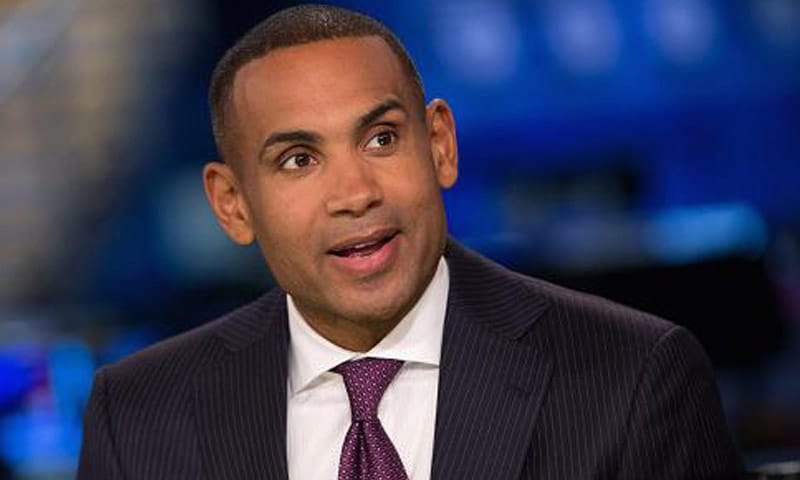
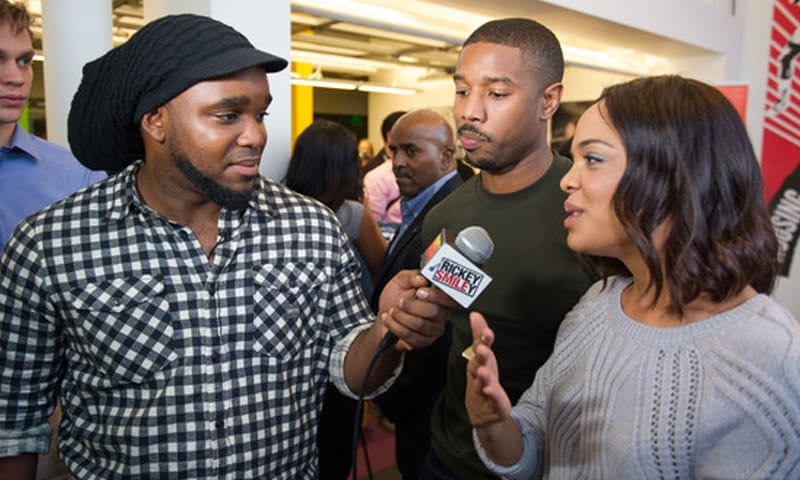
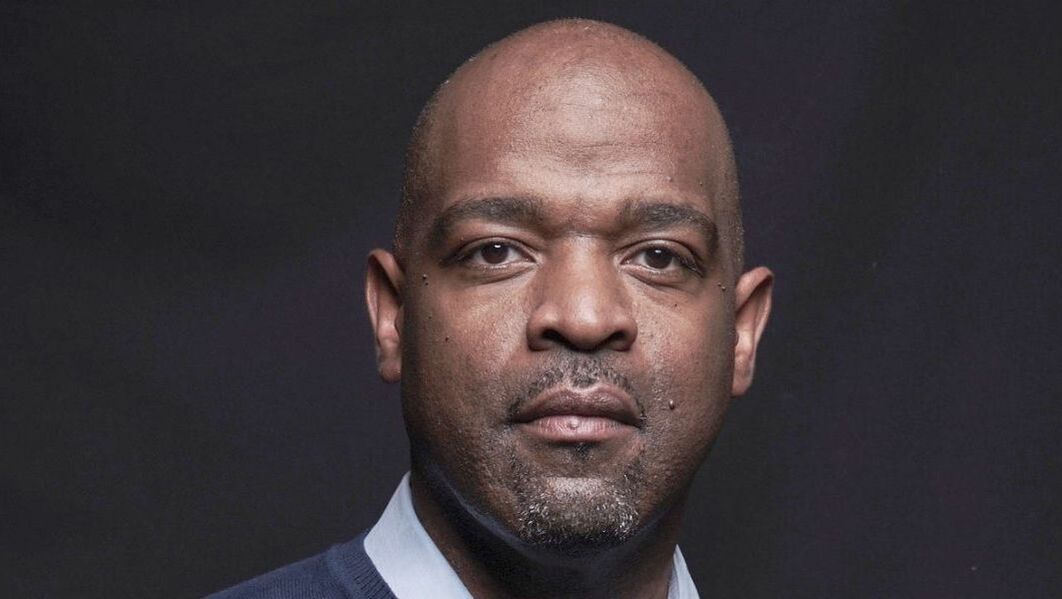
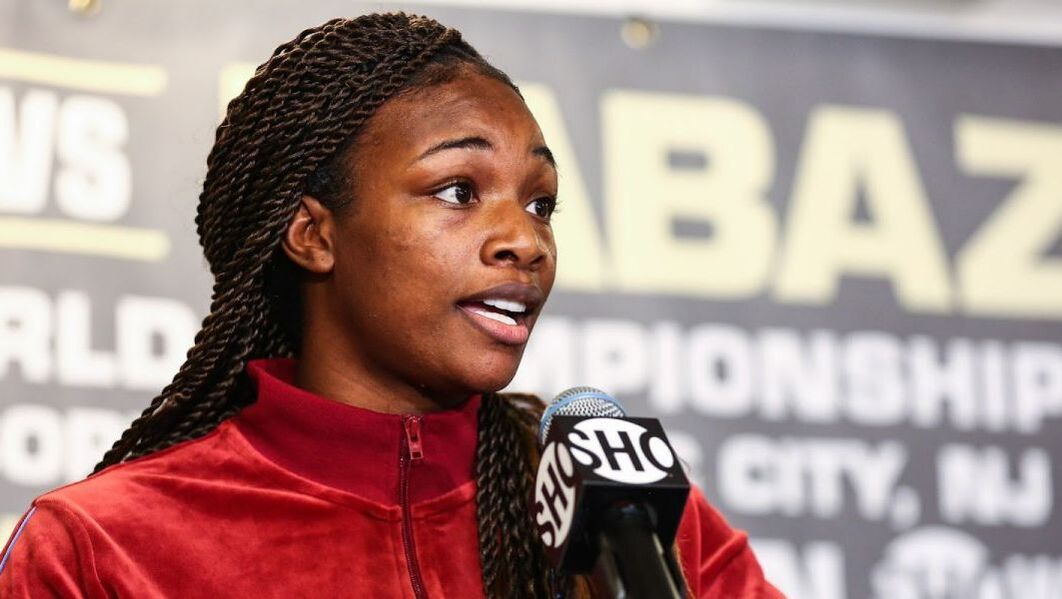
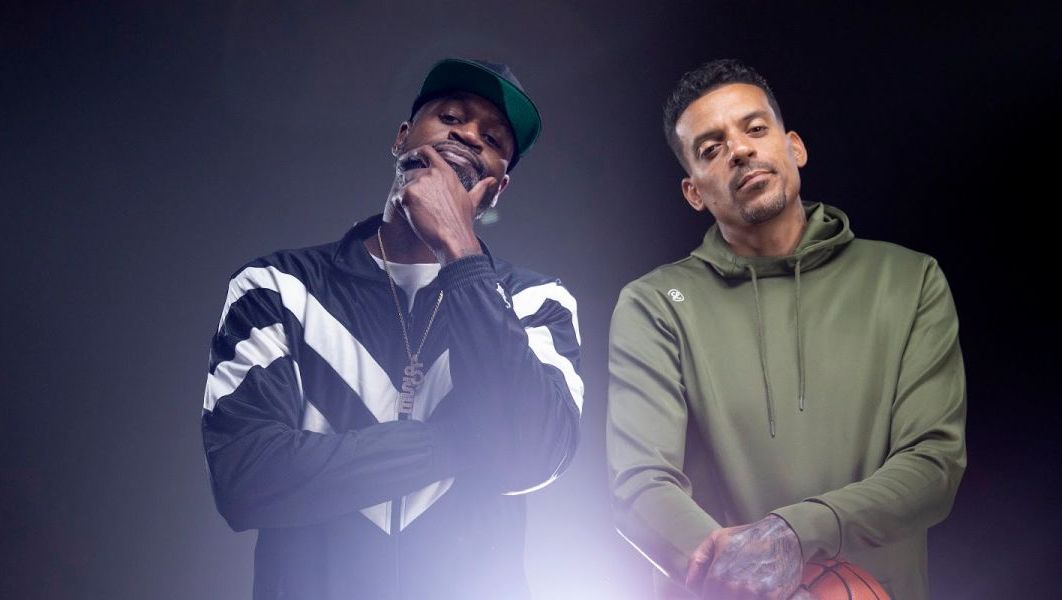
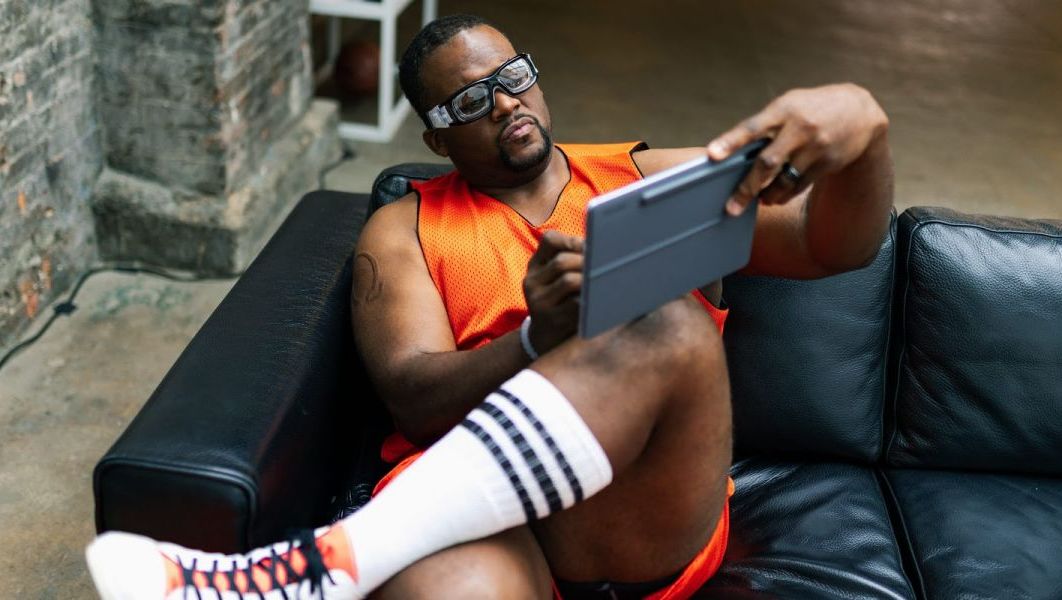
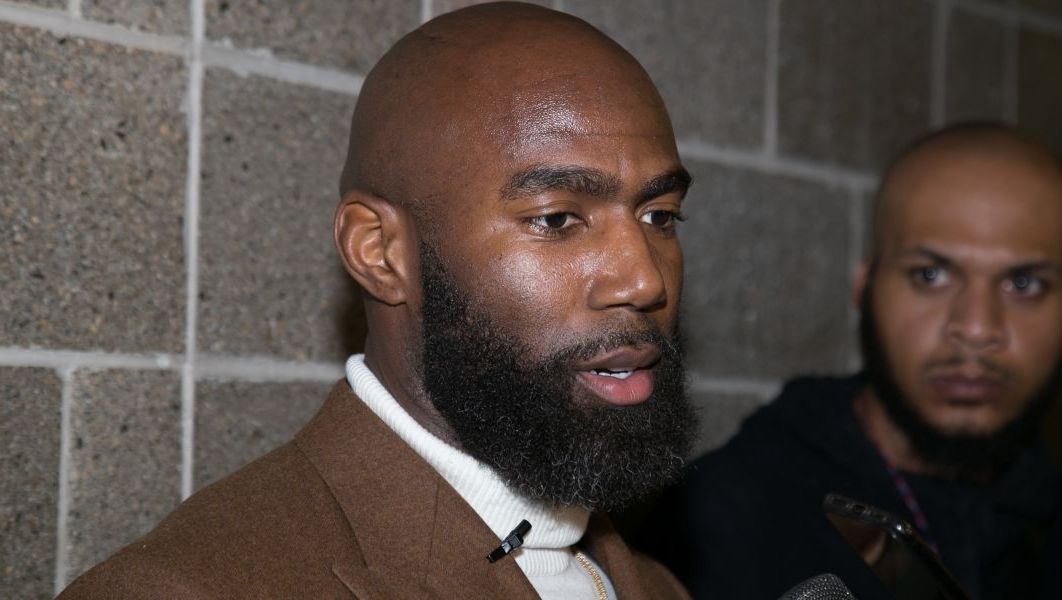
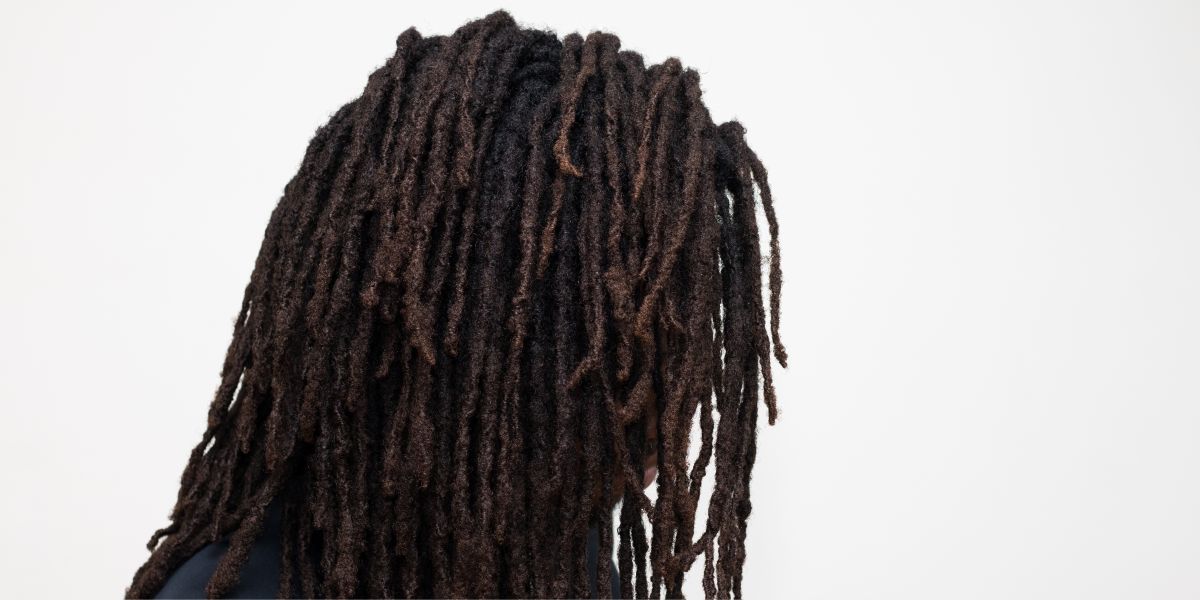
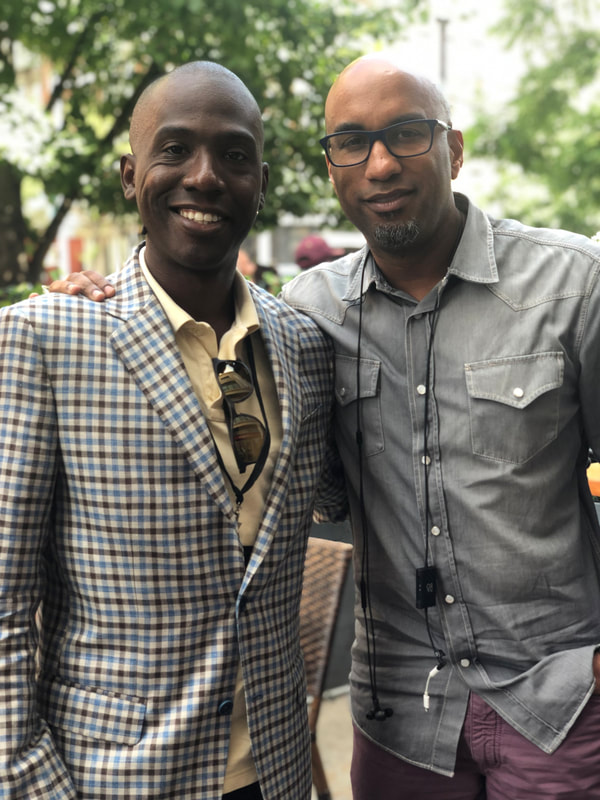
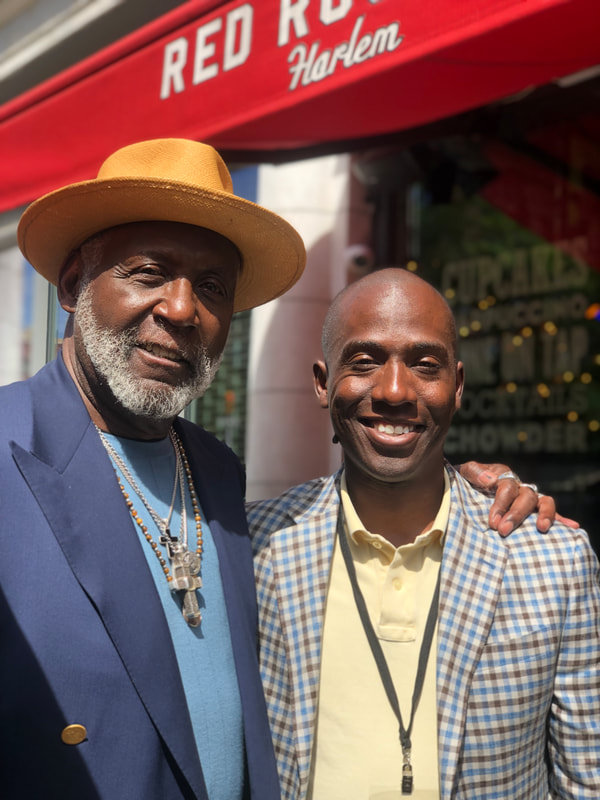
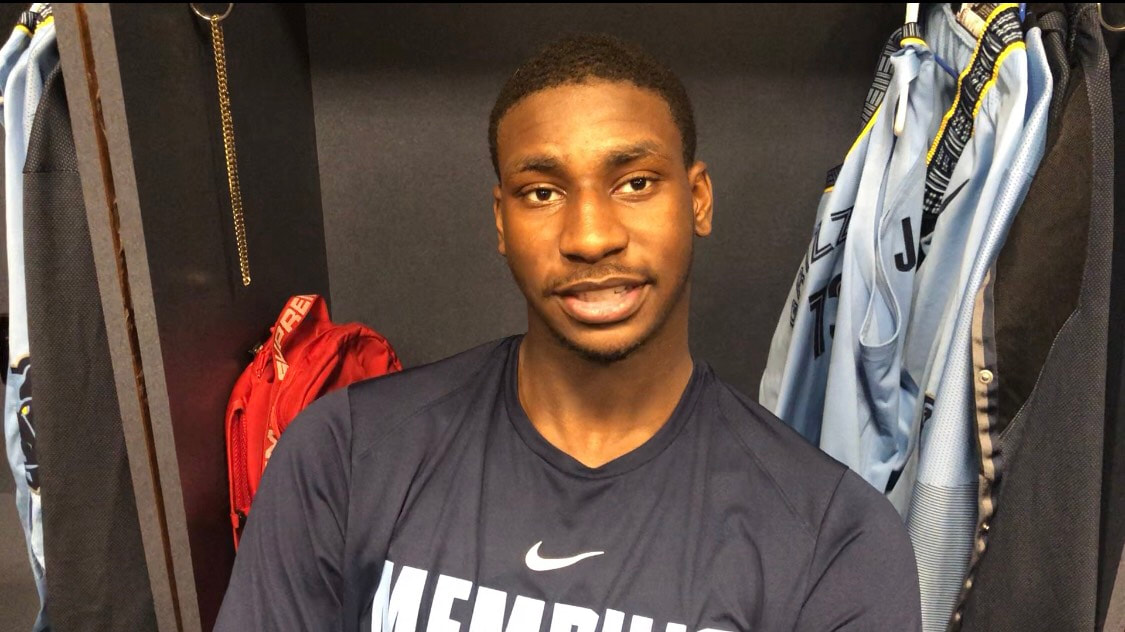
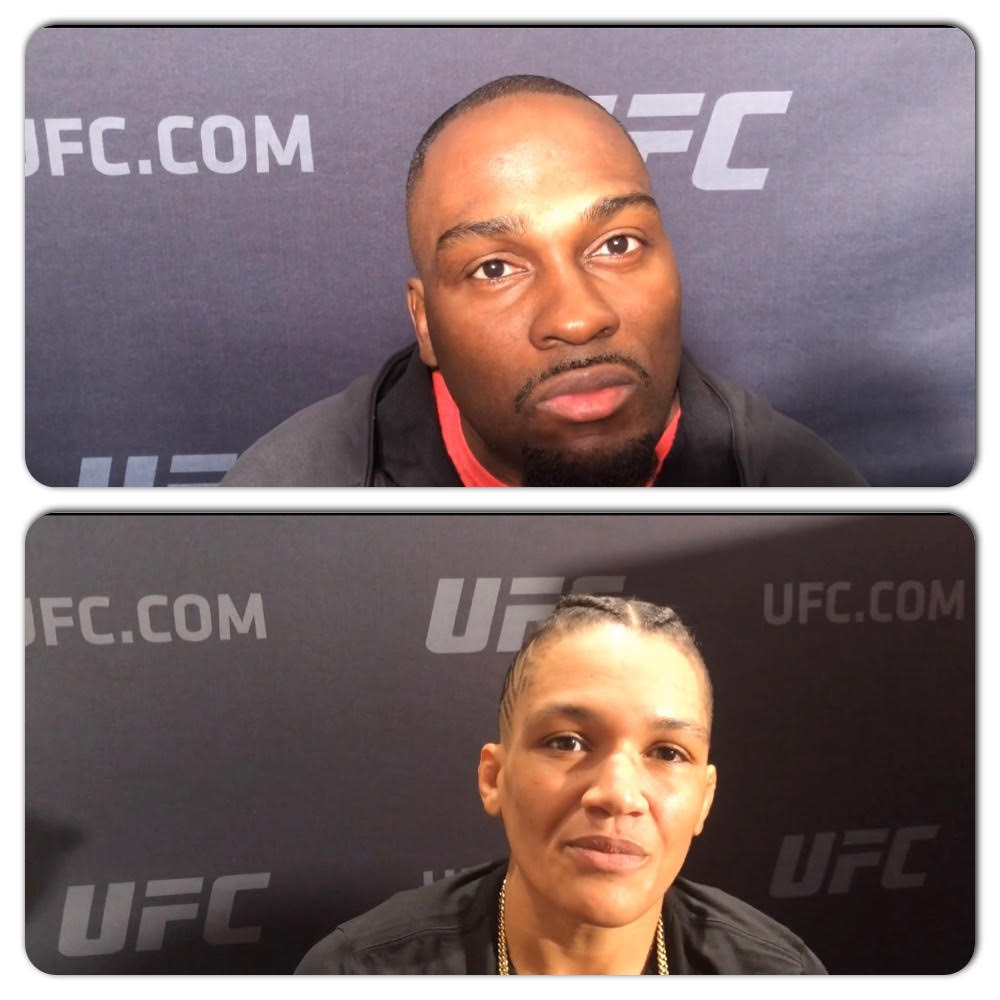
 RSS Feed
RSS Feed